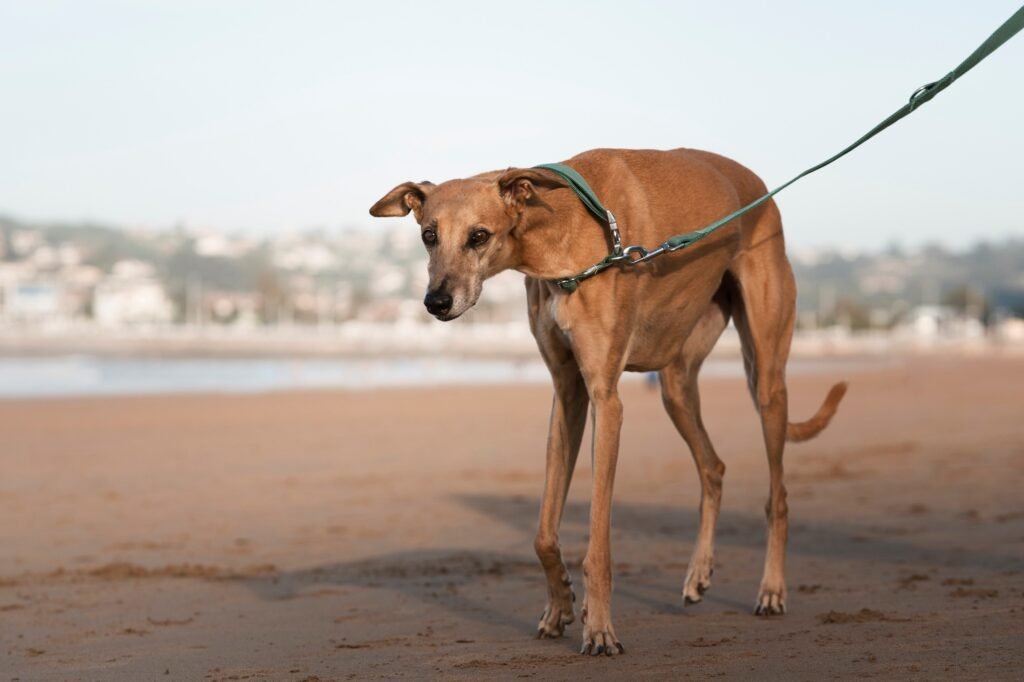Common Greyhound Diseases: Caring for Your Running Companion
Greyhounds, with their slender build and impressive speed, are known for their gentle nature and affectionate personalities. However, like any breed, they are susceptible to certain health conditions that can affect their overall well-being.
In this article, we will explore some of the common diseases in greyhounds, their symptoms, causes, and preventive measures or treatments you can take to ensure your canine companion enjoys a healthy and happy life.
1. Ventral Comedone Syndrome:
- Symptoms: Appearance of blackheads or pimples on the ventral area, redness and inflammation of the skin, itching and discomfort.
- Causes: Associated with friction of the skin against the ground, especially in greyhounds that sleep on hard surfaces.
- Prevention: Provide your greyhound with a comfortable sleeping spot, such as a soft bed or blankets, keep the ventral area clean and dry, use soothing skin creams or lotions.
- Treatment: In mild cases, regular cleaning and topical products may be sufficient. In more severe cases, antibiotics or corticosteroids prescribed by a veterinarian may be necessary.
2. Progressive Retinal Atrophy (PRA):
- Symptoms: Gradual loss of vision, starting with night vision and progressing to complete blindness.
- Causes: Inherited genetic disease that affects the photoreceptors in the retina.
- Prevention: There is no cure for PRA, but early detection through genetic testing can help reduce the spread of the disease.
- Treatment: While there is no way to restore lost vision, there are therapies that can help slow the progression of the disease and improve the dog’s quality of life.
3. Gastric Torsion:
- Symptoms: Abdominal distension, severe pain, nausea, vomiting, excessive drooling, difficulty breathing.
- Causes: Dilation and twisting of the stomach, which can cut off blood supply and lead to necrosis.
- Prevention: Avoid feeding your greyhound immediately after exercise, divide meals into smaller portions, prevent them from drinking large amounts of water at once, maintain a healthy body weight.
- Treatment: Requires immediate veterinary attention, as it is a life-threatening condition. Surgery is generally necessary to correct the torsion and de-gas the stomach.
4. Dental Diseases:
- Symptoms: Bad breath, tartar and plaque buildup, gingivitis, inflammation of the gums, tooth loss.
- Causes: Lack of proper dental hygiene, consumption of hard bones or inappropriate chew toys.
- Prevention: Brush your greyhound’s teeth regularly, provide them with safe and appropriate chew toys for their size, perform regular dental checkups with a veterinarian.
- Treatment: Professional dental cleanings and extractions of damaged teeth may be necessary in advanced cases.
5. Cancer:
- Symptoms: Symptoms vary depending on the type of cancer, but may include abnormal lumps or masses, loss of appetite, weight loss, fatigue, unusual bleeding.
- Causes: Genetic, environmental, and lifestyle factors can contribute to cancer development.
- Prevention: Maintain a healthy body weight, provide a nutritious and balanced diet, avoid exposure to toxins and carcinogens, perform regular checkups with a veterinarian.
- Treatment: Cancer treatment depends on the type, stage, and overall health of the dog. It may include surgery, chemotherapy, radiation therapy, or drug therapy.
Remember:
- Preventive care and regular veterinary checkups are crucial for detecting diseases in greyhounds early and taking appropriate action.
- A healthy diet, regular exercise, and an enriched living environment also contribute to your greyhound’s overall health and well-being.
- If you notice any signs of illness in your greyhound, consult a veterinarian immediately for proper diagnosis and treatment.
By providing your greyhound with the proper care and attention, you can help them live a long, healthy, and happy life.

